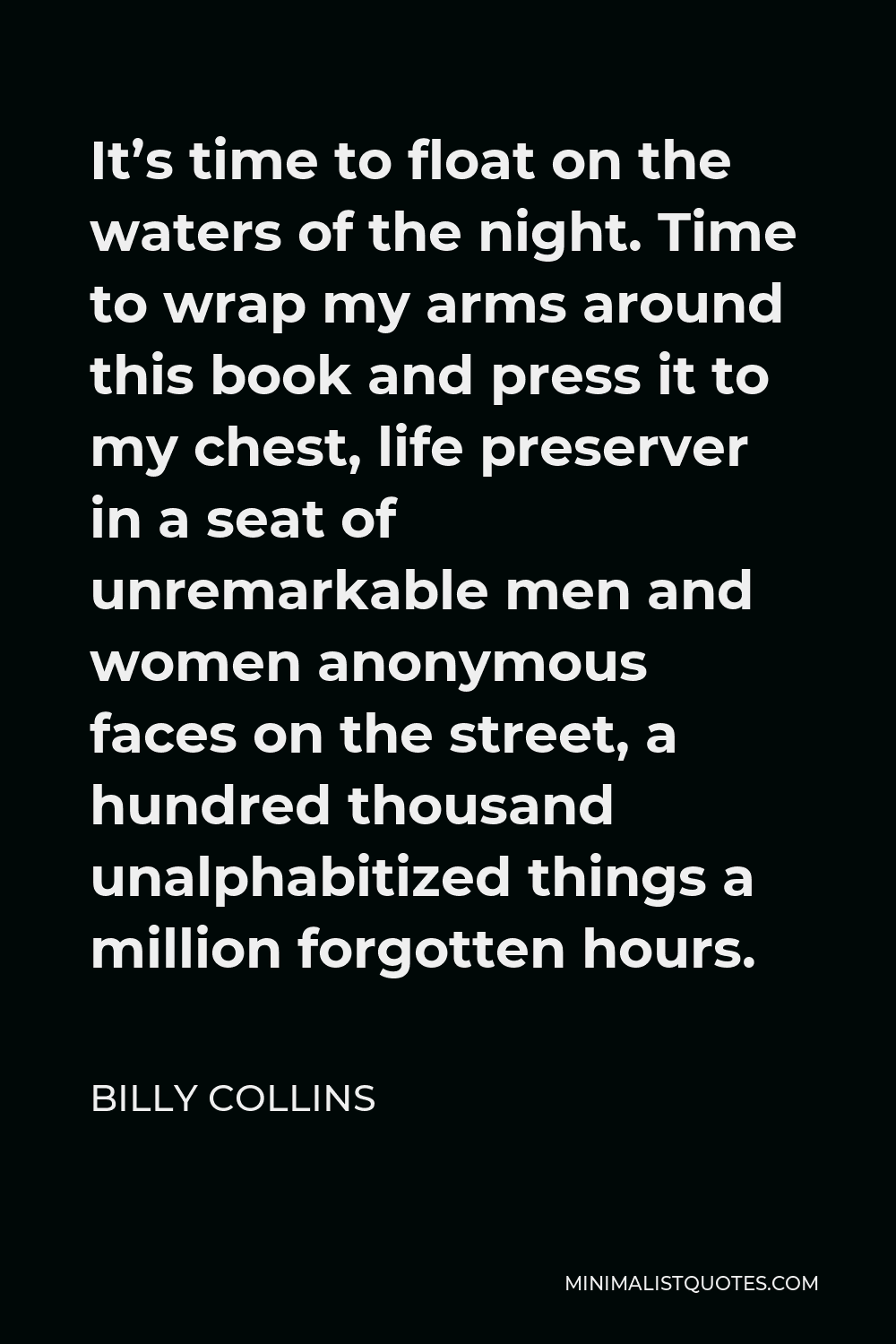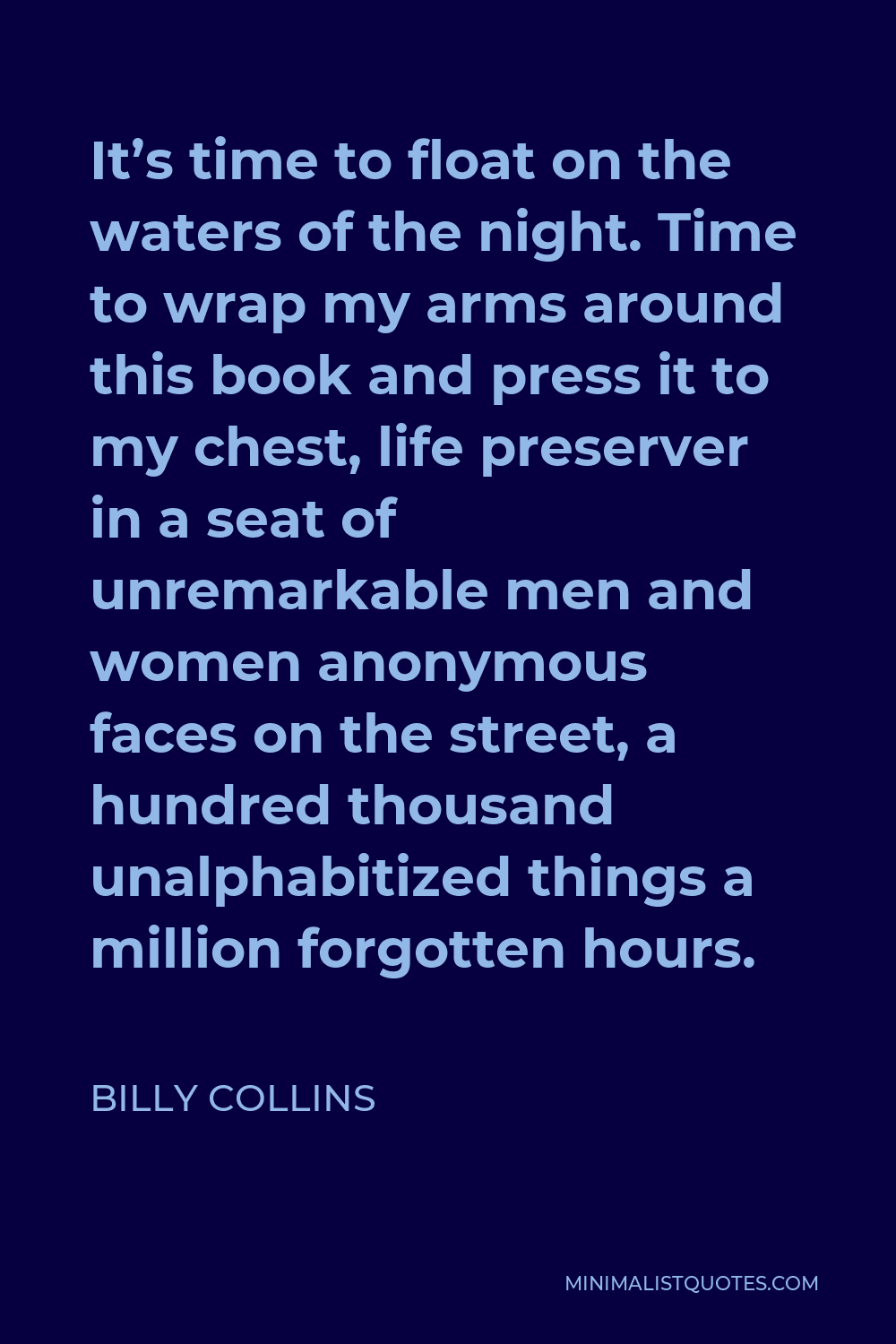To write poetry is to be very alone, but you always have the company of your influences. But you also have the company of the form itself, which has a kind of consciousness.
BILLY COLLINSIt’s time to float on the waters of the night. Time to wrap my arms around this book and press it to my chest, life preserver in a seat of unremarkable men and women anonymous faces on the street, a hundred thousand unalphabitized things a million forgotten hours.
More Billy Collins Quotes
-





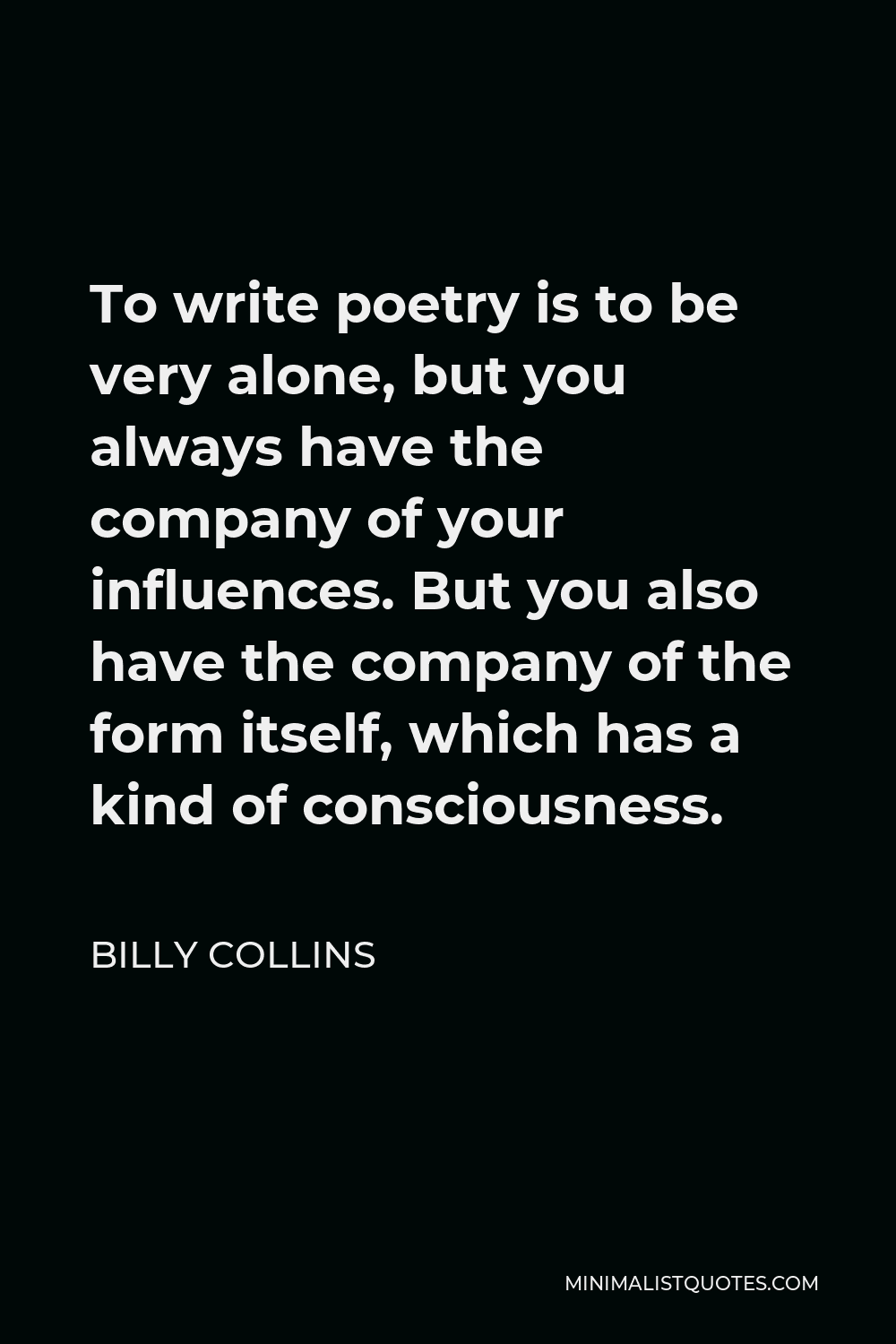
-





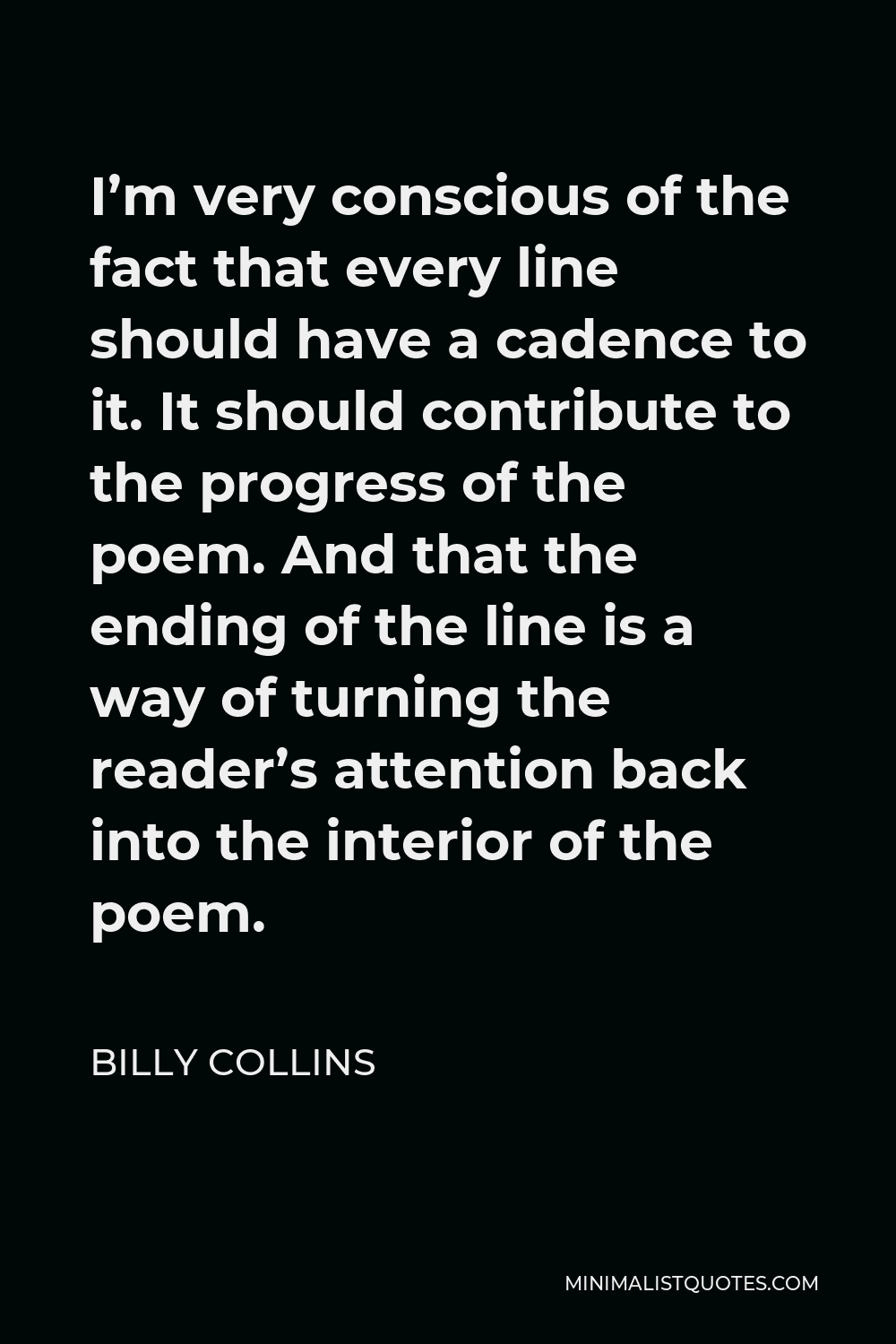
I’m very conscious of the fact that every line should have a cadence to it. It should contribute to the progress of the poem. And that the ending of the line is a way of turning the reader’s attention back into the interior of the poem.
BILLY COLLINS -





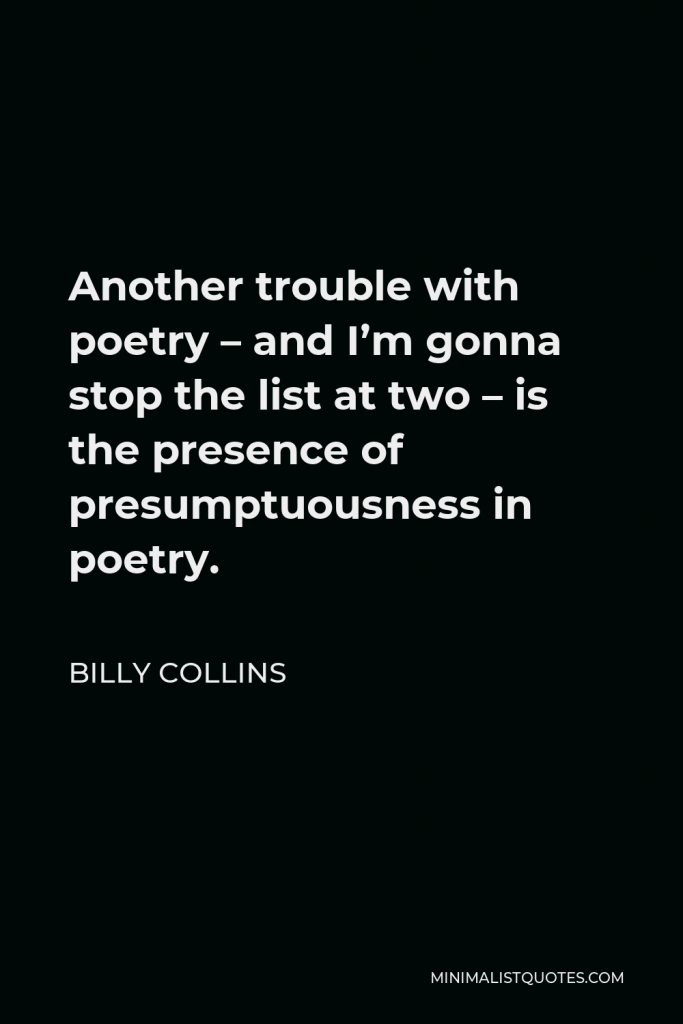

Another trouble with poetry – and I’m gonna stop the list at two – is the presence of presumptuousness in poetry.
BILLY COLLINS -





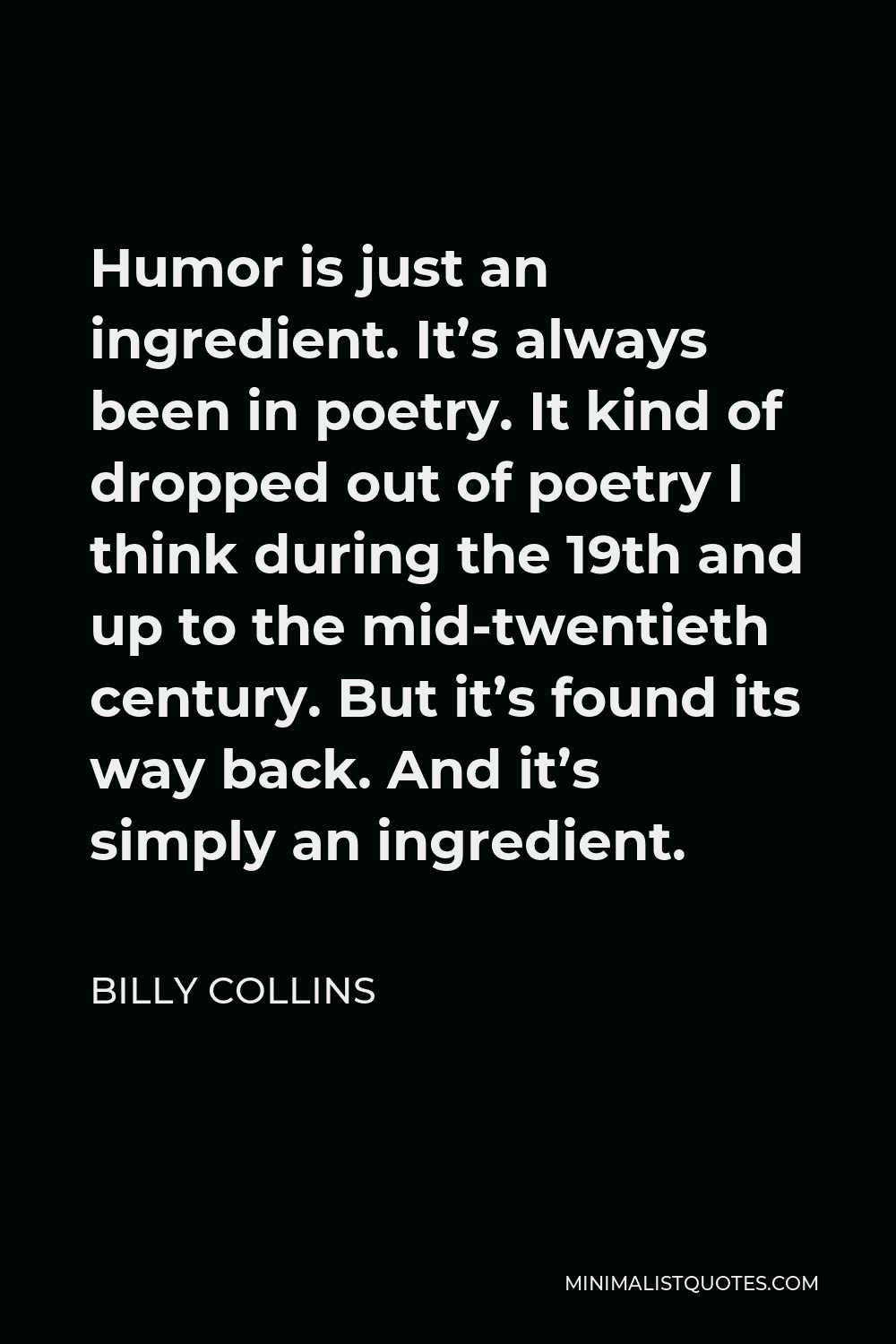
Humor is just an ingredient. It’s always been in poetry. It kind of dropped out of poetry I think during the 19th and up to the mid-twentieth century. But it’s found its way back. And it’s simply an ingredient.
BILLY COLLINS -





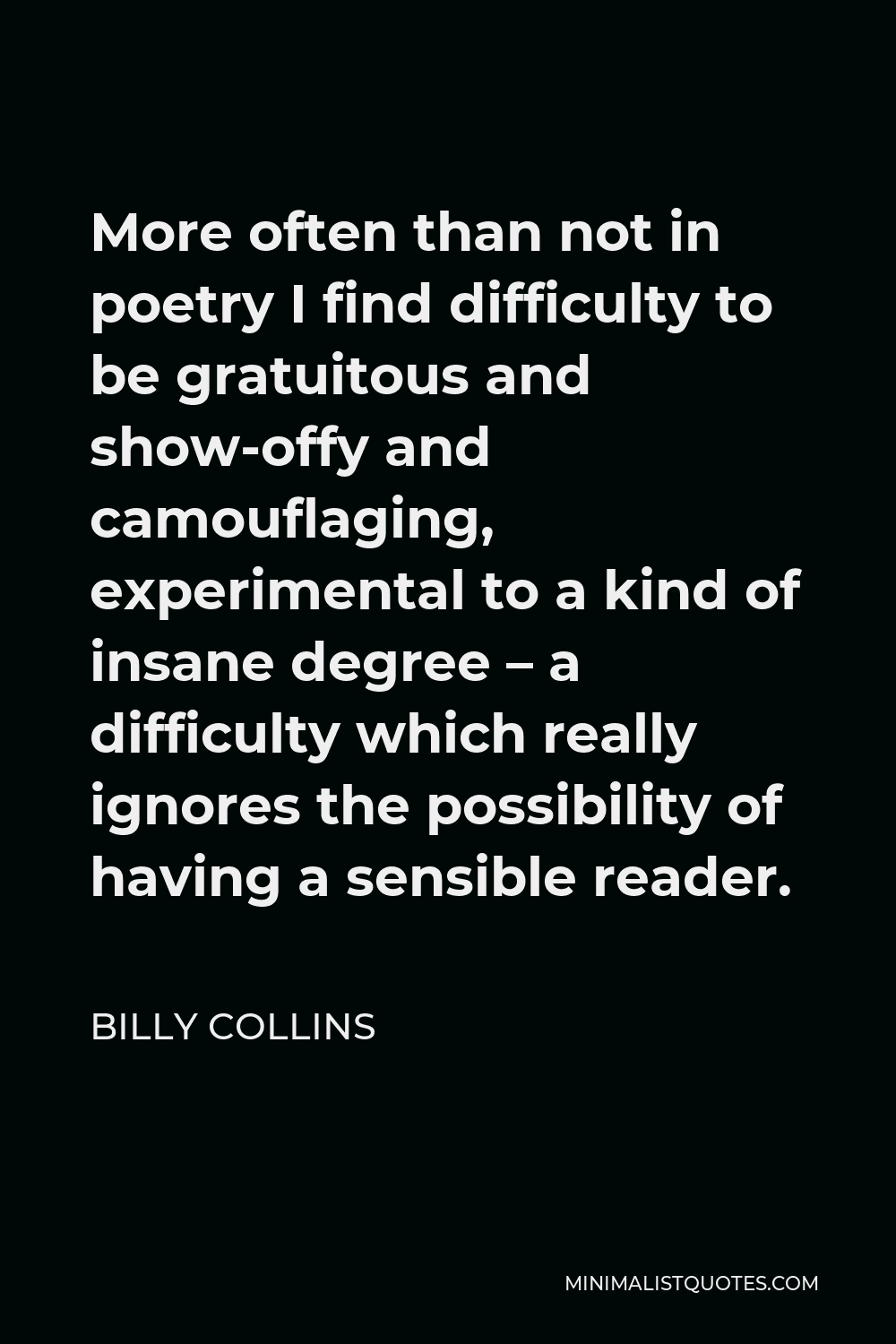
More often than not in poetry I find difficulty to be gratuitous and show-offy and camouflaging, experimental to a kind of insane degree – a difficulty which really ignores the possibility of having a sensible reader.
BILLY COLLINS -





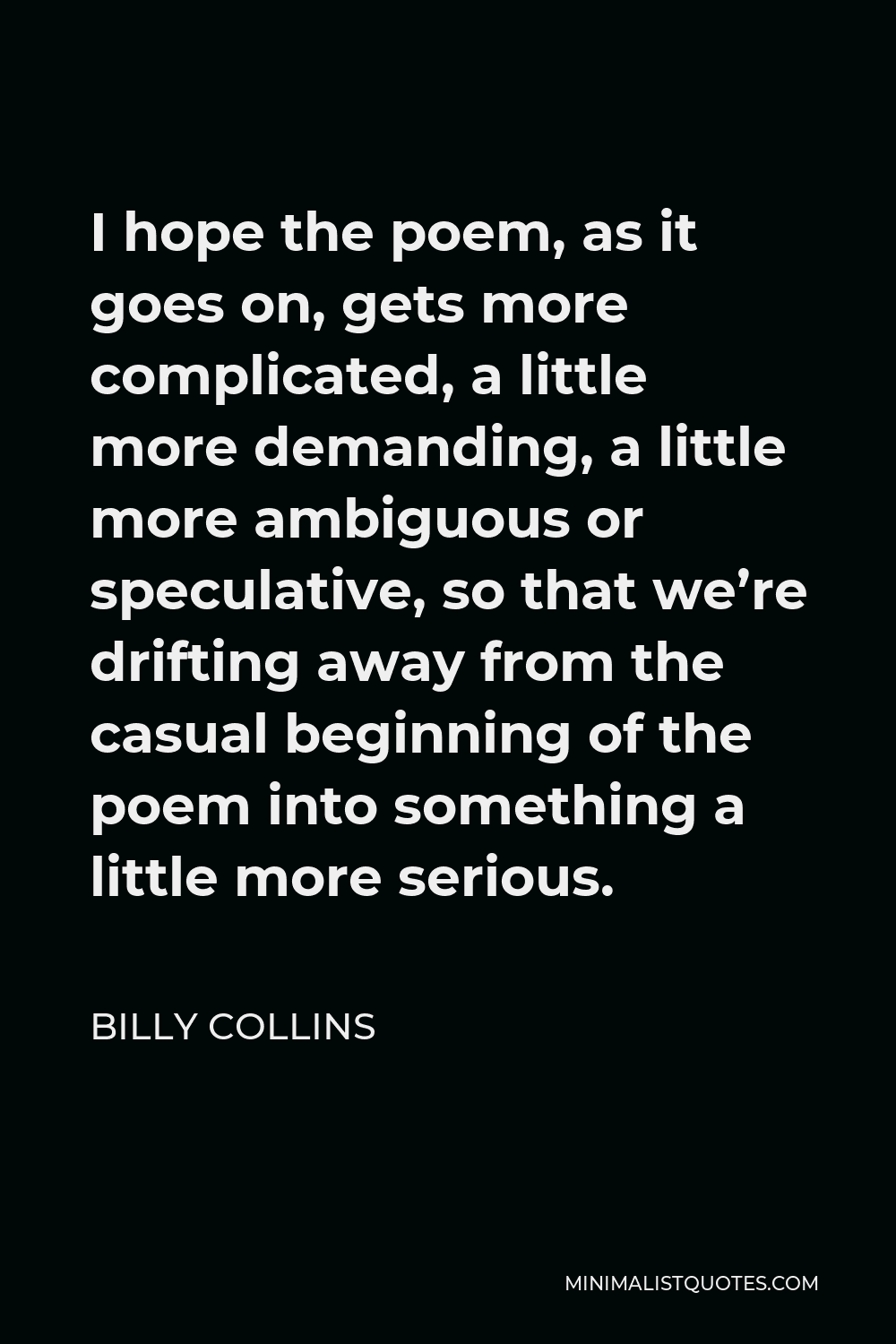
I hope the poem, as it goes on, gets more complicated, a little more demanding, a little more ambiguous or speculative, so that we’re drifting away from the casual beginning of the poem into something a little more serious.
BILLY COLLINS -





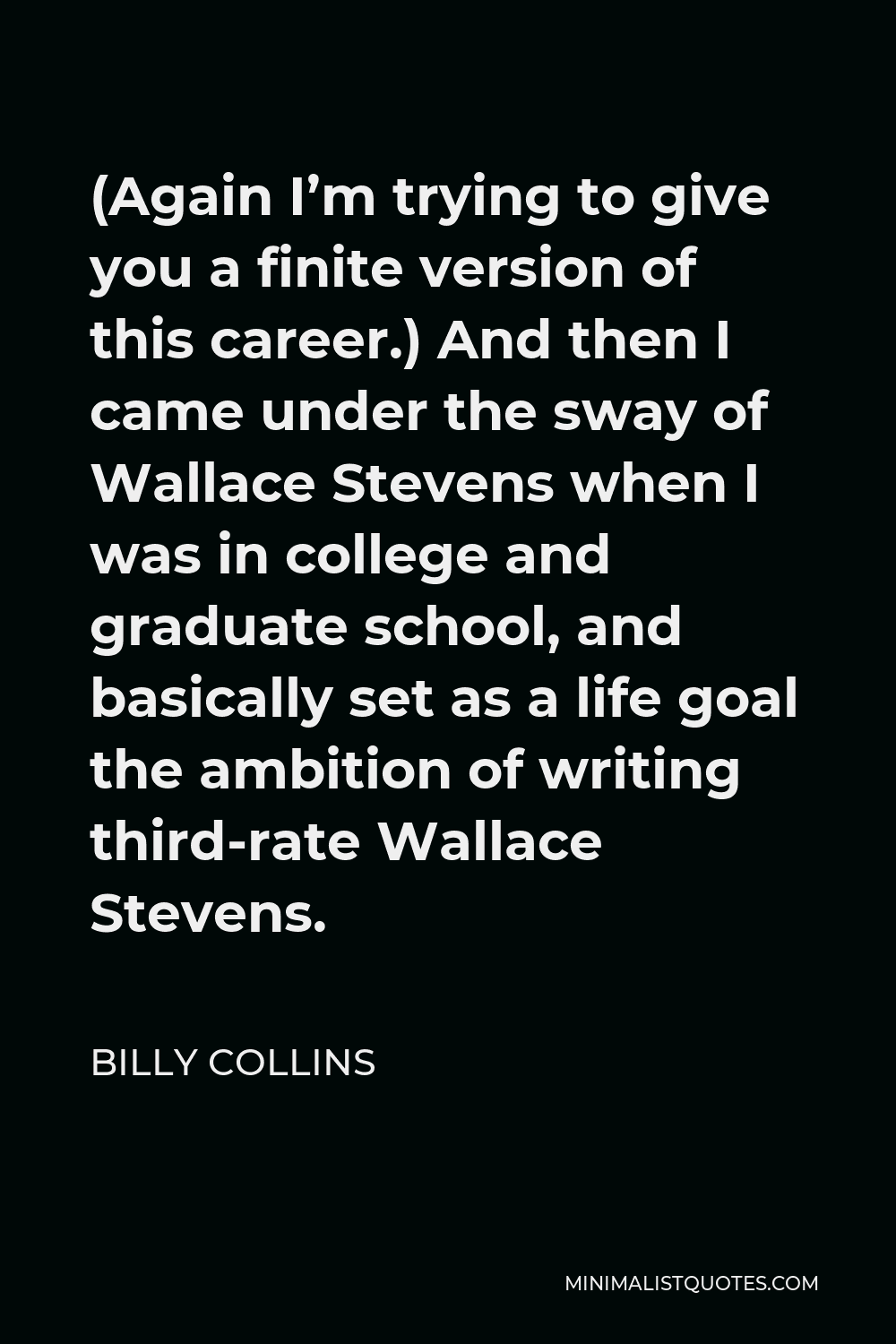
(Again I’m trying to give you a finite version of this career.) And then I came under the sway of Wallace Stevens when I was in college and graduate school, and basically set as a life goal the ambition of writing third-rate Wallace Stevens.
BILLY COLLINS -





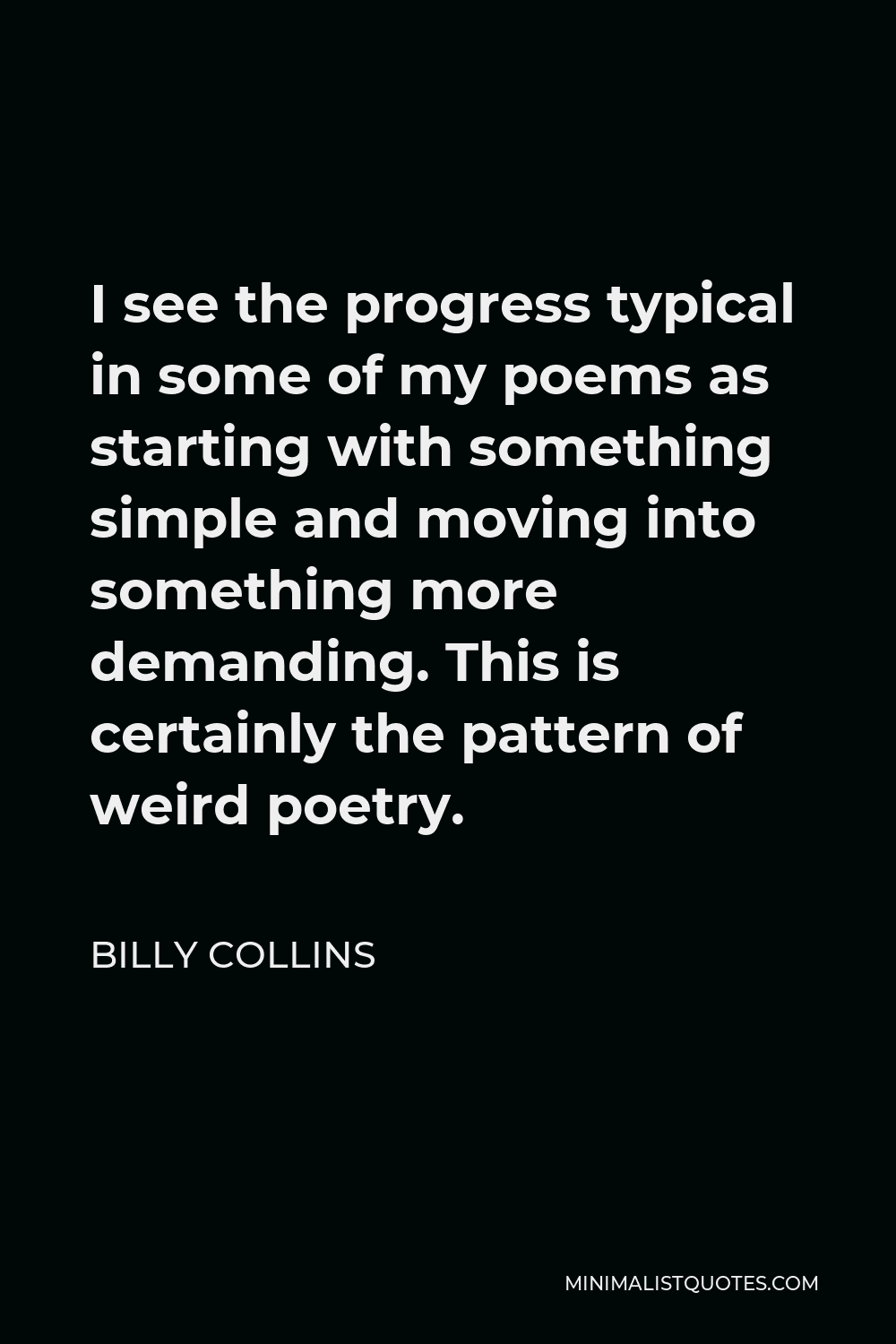
I see the progress typical in some of my poems as starting with something simple and moving into something more demanding. This is certainly the pattern of weird poetry.
BILLY COLLINS -





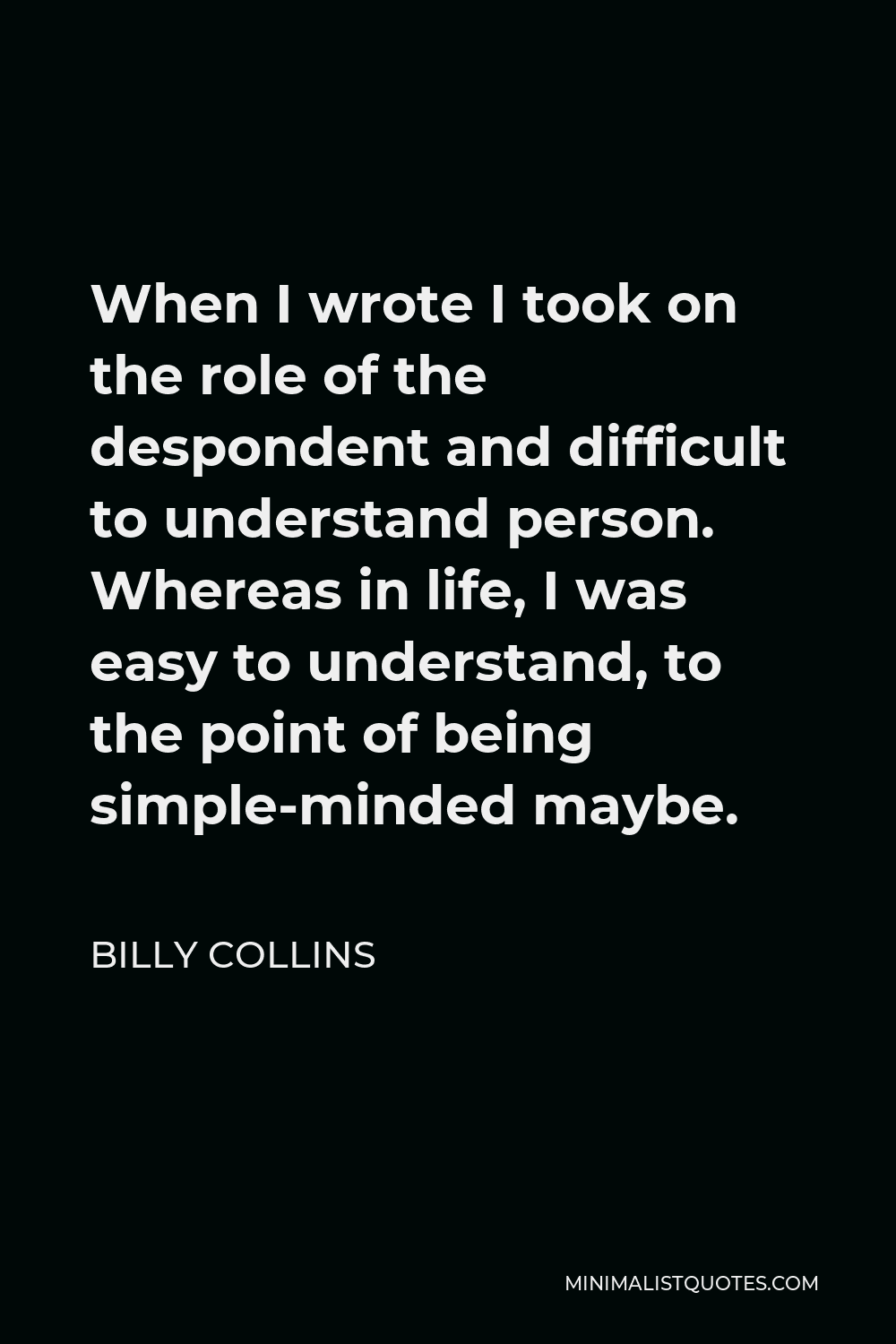
When I wrote I took on the role of the despondent and difficult to understand person. Whereas in life, I was easy to understand, to the point of being simple-minded maybe.
BILLY COLLINS -





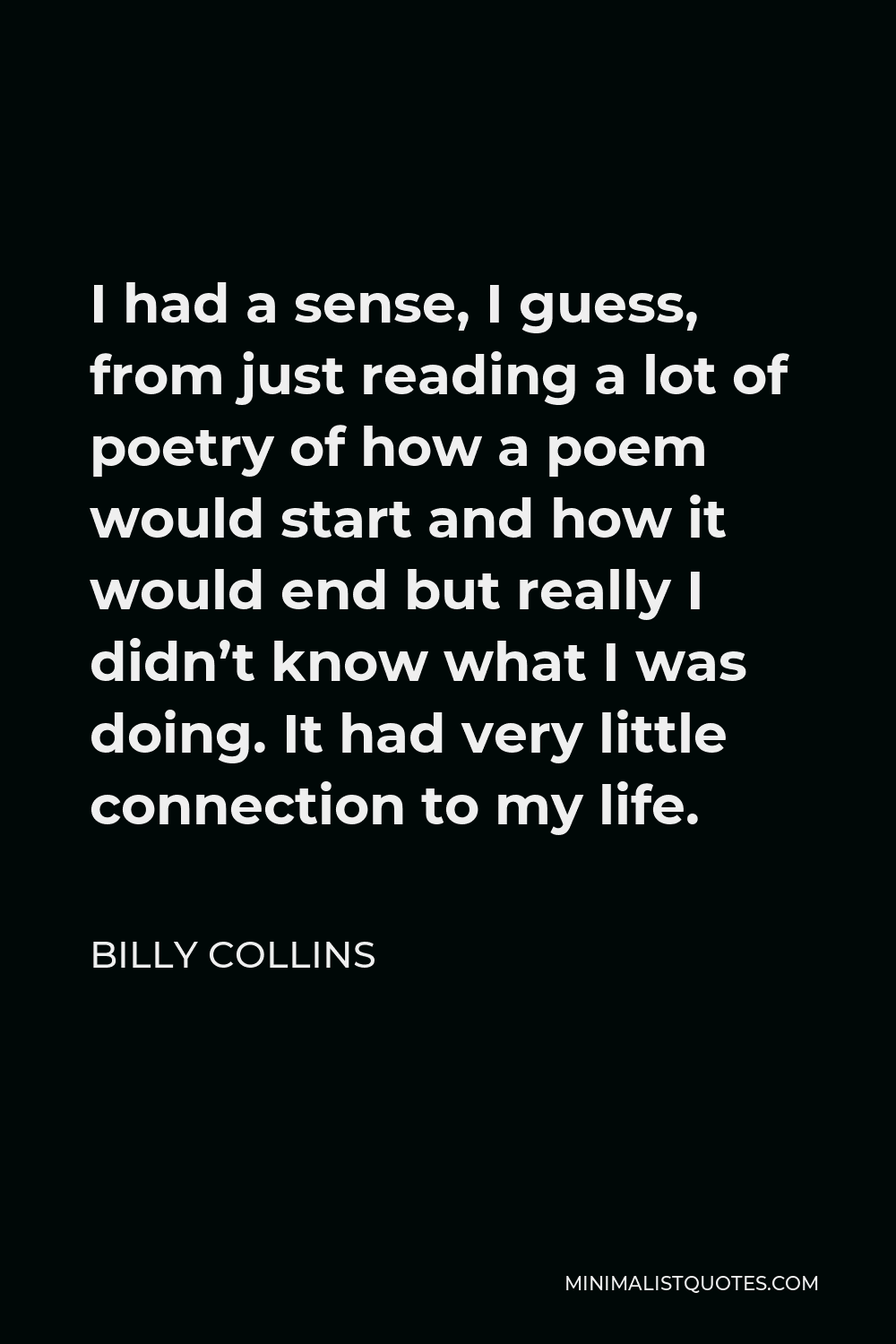
I had a sense, I guess, from just reading a lot of poetry of how a poem would start and how it would end but really I didn’t know what I was doing. It had very little connection to my life.
BILLY COLLINS -





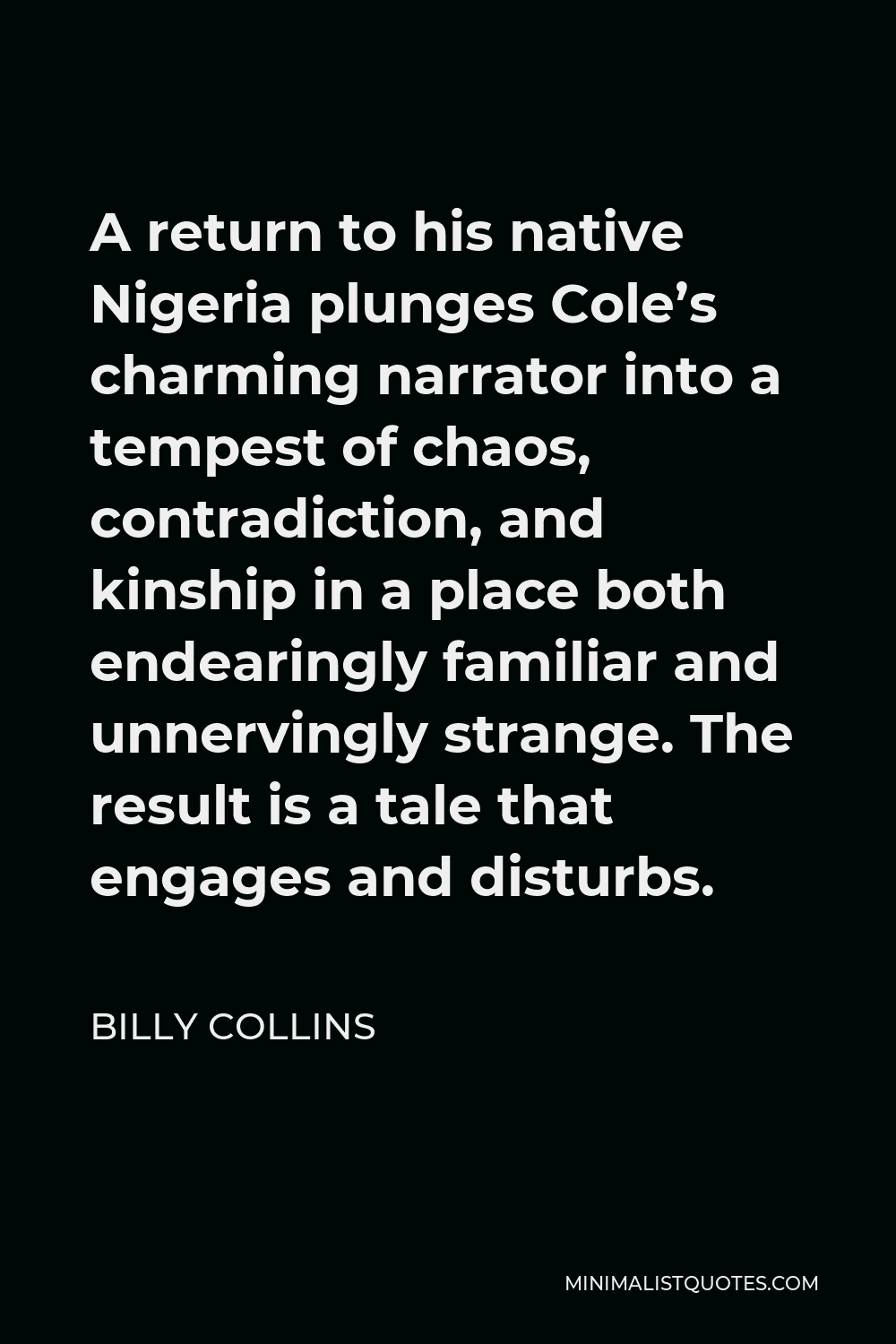
A return to his native Nigeria plunges Cole’s charming narrator into a tempest of chaos, contradiction, and kinship in a place both endearingly familiar and unnervingly strange. The result is a tale that engages and disturbs.
BILLY COLLINS -





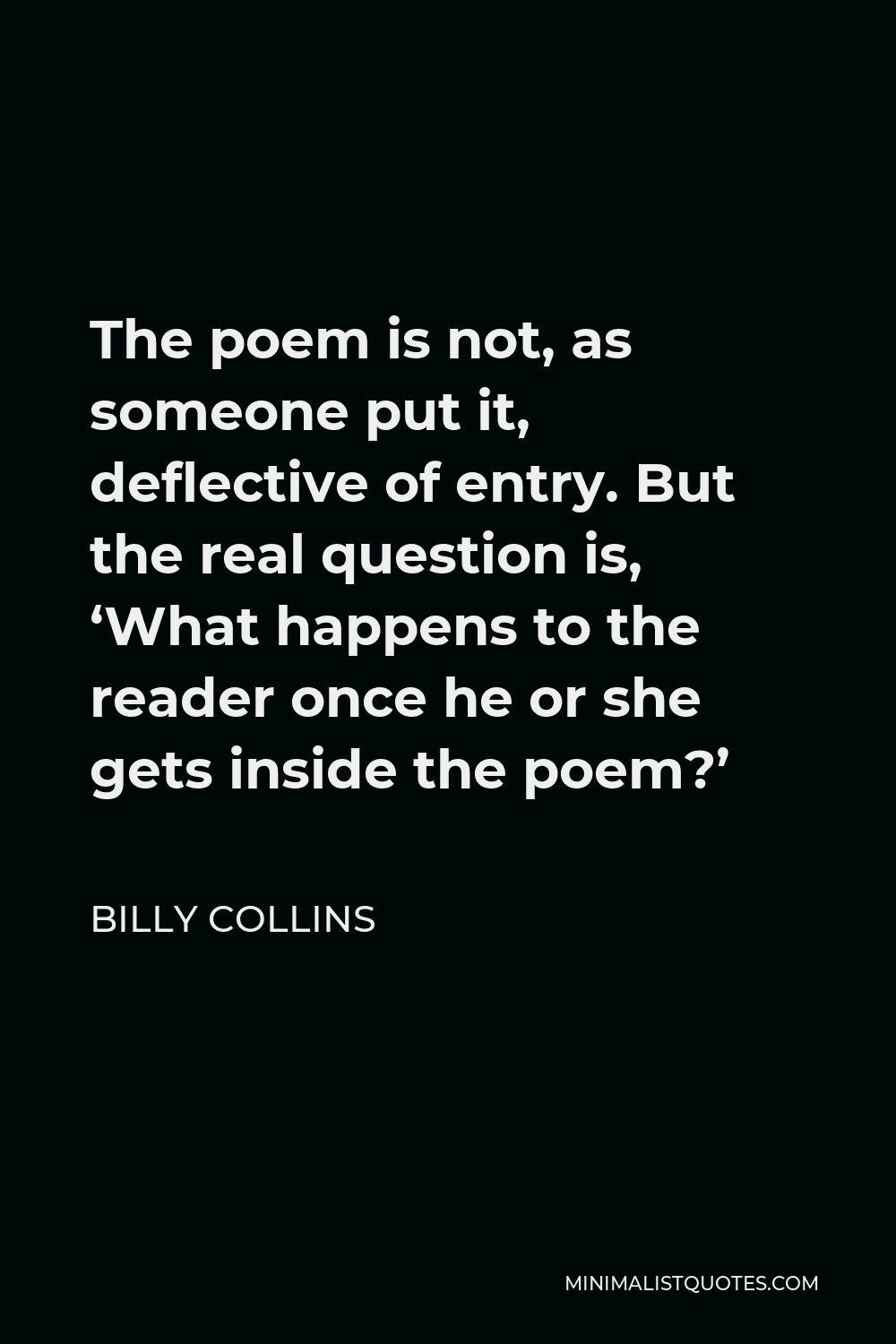
The poem is not, as someone put it, deflective of entry. But the real question is, ‘What happens to the reader once he or she gets inside the poem?’
BILLY COLLINS -





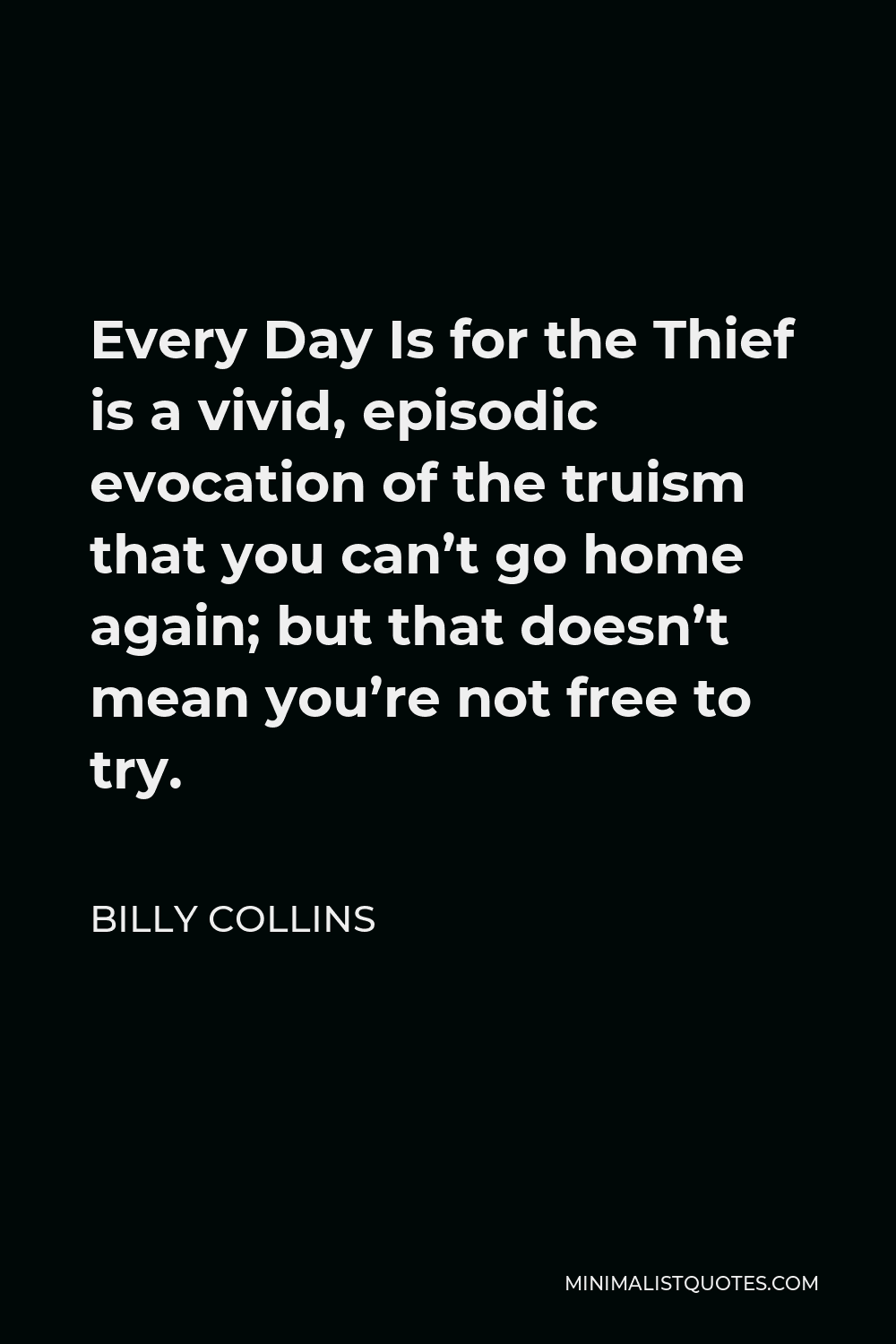
Every Day Is for the Thief is a vivid, episodic evocation of the truism that you can’t go home again; but that doesn’t mean you’re not free to try.
BILLY COLLINS -






I can hear the library humming in the night, a choir of authors murmuring inside their books along the unlit, alphabetical shelves, Giovanni Pontano next to Pope, Dumas next to his son, each one stitched into his own private coat, together forming a low, gigantic chord of language.
BILLY COLLINS -





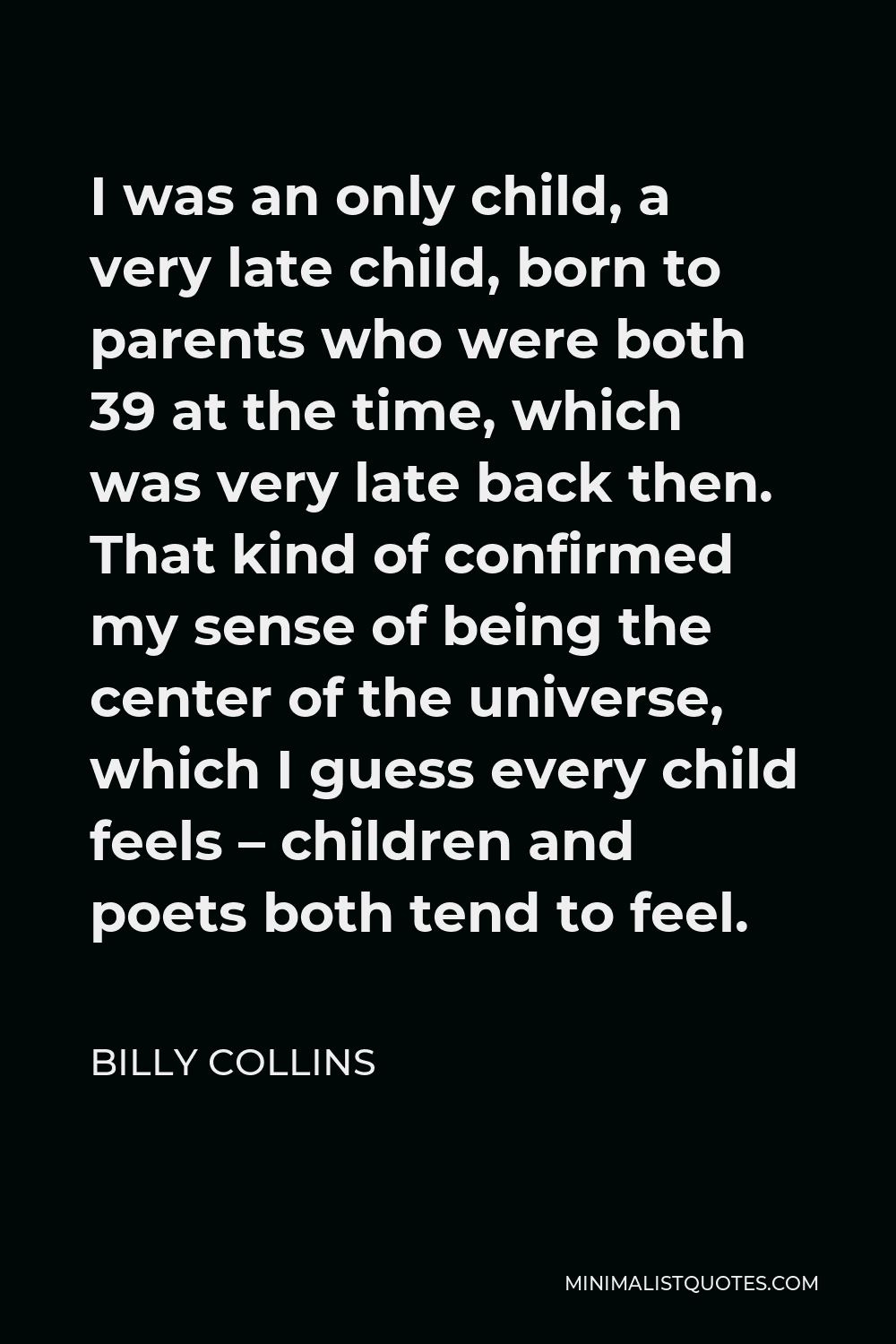
I was an only child, a very late child, born to parents who were both 39 at the time, which was very late back then. That kind of confirmed my sense of being the center of the universe, which I guess every child feels – children and poets both tend to feel.
BILLY COLLINS -





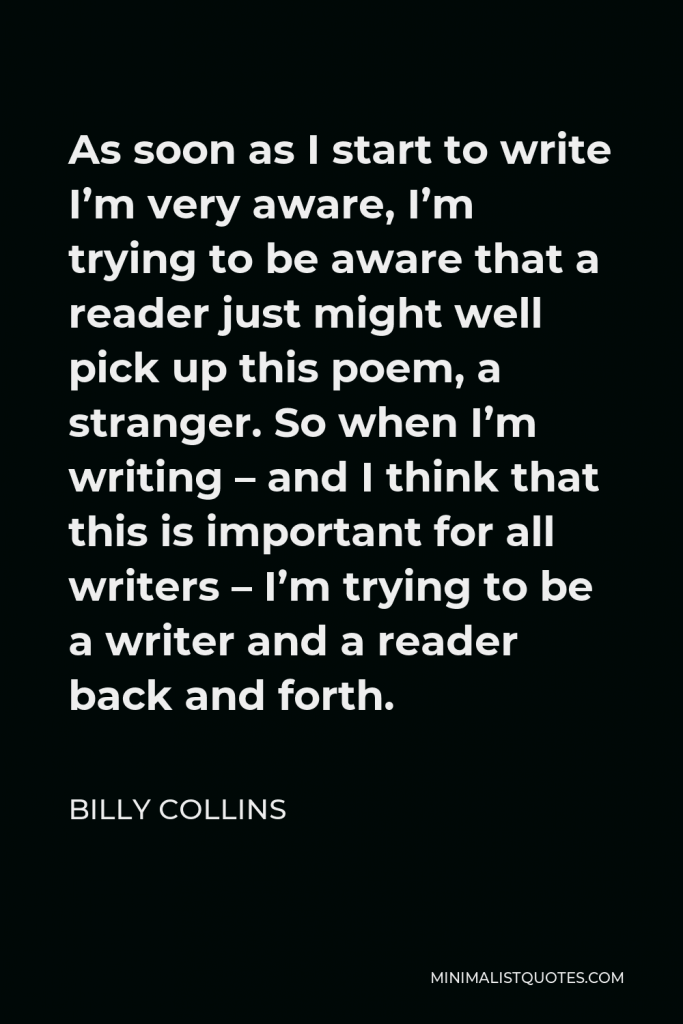

As soon as I start to write I’m very aware, I’m trying to be aware that a reader just might well pick up this poem, a stranger. So when I’m writing – and I think that this is important for all writers – I’m trying to be a writer and a reader back and forth.
BILLY COLLINS
